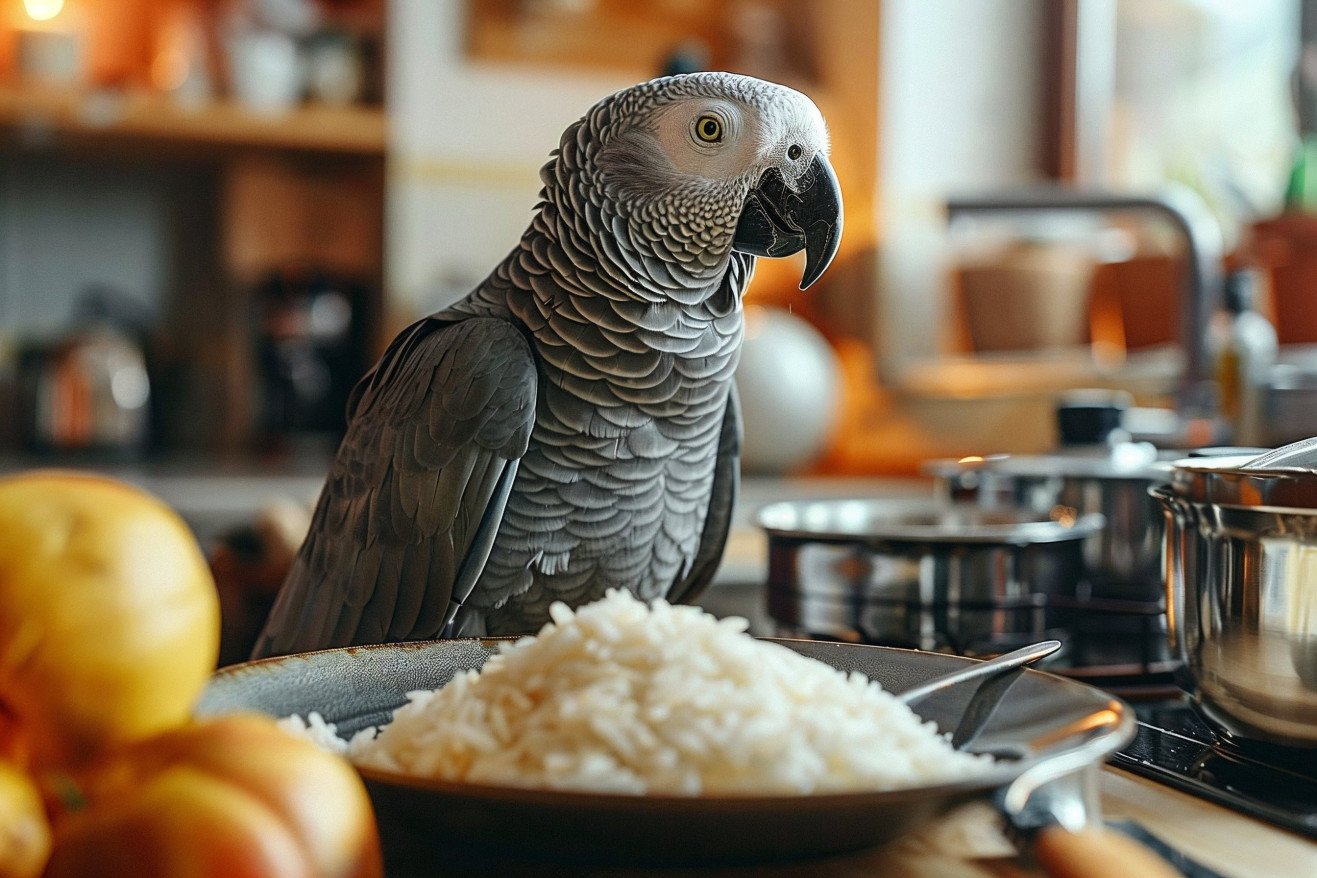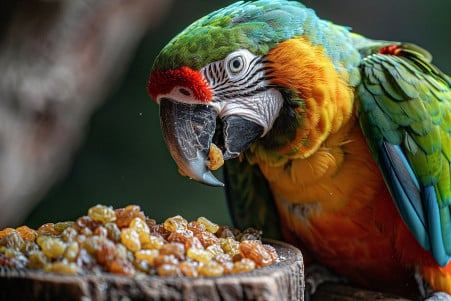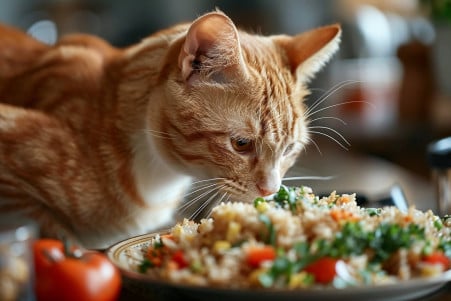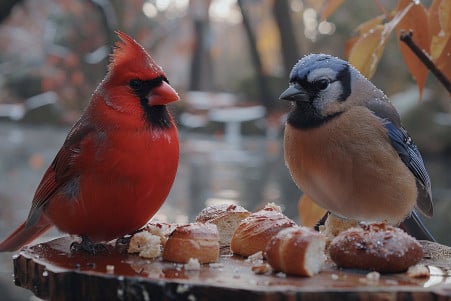Can Birds Have Rice? Pros and Cons of a Rice Diet
3 April 2024 • Updated 3 April 2024

If you’ve ever wondered if you can give your rice to the birds or if rice is a good food for birds, you’re in luck. Cooked rice can be a healthy snack for many types of birds, but uncooked, dry rice can be dangerous because it can expand in a bird’s stomach. That said, rice should not be a staple of a bird’s diet. Birds need a variety of foods to stay healthy.
Even if you’re feeding your bird a variety of foods, there are still some things to keep in mind when it comes to feeding them rice. We’ll cover the research on what birds need in their diets and will reference experts about how to feed your bird rice in a way that’s safe. This way, you can make sure you’re feeding your bird the right amount of rice and the right kinds of rice-based foods.
Can birds eat rice?
How to Make Rice Safe for Birds
Cooked rice is safe for birds and easier for them to digest than uncooked rice. To make rice safe for birds to eat, you should rinse the rice several times to remove the starch, cook it in a pot with an equal amount of water over medium heat until the water is absorbed, and then let the rice cool for at least 30 minutes before serving. You should not add any oils, salt, spices, or other flavorings to the rice, as these can be toxic to birds.
Brown rice is the healthiest option because it has more nutrients and natural fiber than white rice. However, both brown and white rice have nutrients like protein, iron, thiamine, niacin, and magnesium that are good for birds. The amount of rice you feed your bird should be based on its size and species - rice should be fed in small amounts or mixed with other foods. By following these guidelines, you can give your bird rice as a treat without sacrificing its nutritional needs.
Rice’s Place in a Bird’s Diet
While rice can offer birds some of the carbohydrates and energy they need, it should not be a bird’s main source of nutrition. The Conversation explains that rice is not very nutritious when compared to other things that birds need. A healthy bird diet should include a mix of seeds, nuts, fruits, vegetables, and insects to make sure that birds get all the nutrients that they need.
The PBS video says that rice should only make up about 10% of a bird’s diet to avoid malnutrition. Introduce rice to a bird’s diet slowly and watch for any negative side effects, as some birds may have trouble digesting it. For more information on what a bird should eat based on its species and other individual factors, it’s best to talk to an avian vet or another expert.
The Myth of Rice Belly
The idea that uncooked rice will swell up in a bird's stomach and cause it to die is a common myth. According to FeederWatch, many birds, including bobolinks, which are sometimes called "rice birds," eat uncooked rice in the wild with no ill effects. The All About Birds article notes that many species of birds, from waterfowl to bobolinks, consume rice in the wild and it's easily digested.
As Cole's Wild Bird Products points out, the idea that uncooked rice will expand in a bird's stomach and cause it to explode is a myth. Birds' digestive systems are capable of breaking down and absorbing rice before it has a chance to expand. While cooked rice may be more easily digestible for some birds, uncooked rice doesn't pose a real danger to their health.
How to Feed Birds Rice Responsibly
Rice can be a nutritious and safe part of a bird's diet if it is fed responsibly and in moderation. The Avian Report notes that uncooked rice is a great bird food, with finches and sparrows being especially fond of the uncooked grains. Birds will eat rice whether it is soaked or cooked, but larger generalist birds like grackles, blue jays, blackbirds, and starlings are especially likely to consume it.
To feed birds rice responsibly, it's important to practice good hygiene. Wild Birds Unlimited suggests cleaning feeders and bird baths regularly and keeping the area around the feeding station free of seed debris and bird droppings. Don't let birds crowd at feeders, as this can help spread diseases. It's also important to store bird food, including rice, in containers that are both rodent- and insect-proof to prevent spoilage and contamination.
It's also important to watch for signs of illness in the birds you feed. If you notice any sick birds, temporarily remove your feeders so the birds can disperse and find natural food sources. This will help reduce the risk of disease transmission, according to Wild Birds Unlimited. By following these responsible feeding guidelines, you can safely and responsibly feed rice to your birds as an occasional treat.
Conclusion: Feeding Birds Rice Safely
Rice can be a healthy and fun food for birds as long as it is offered in moderation and as part of a well-rounded diet. Cooked rice is often preferable to uncooked rice because it is easier for birds to digest, but both are safe. Just be sure not to add any seasonings, oils, or other ingredients that could be toxic to birds.
It is also important to make sure that you practice good hygiene and watch for any signs of an adverse reaction when you introduce new foods. If you want to know exactly what you should be feeding your bird based on its species and other factors, make sure to ask avian professionals.


